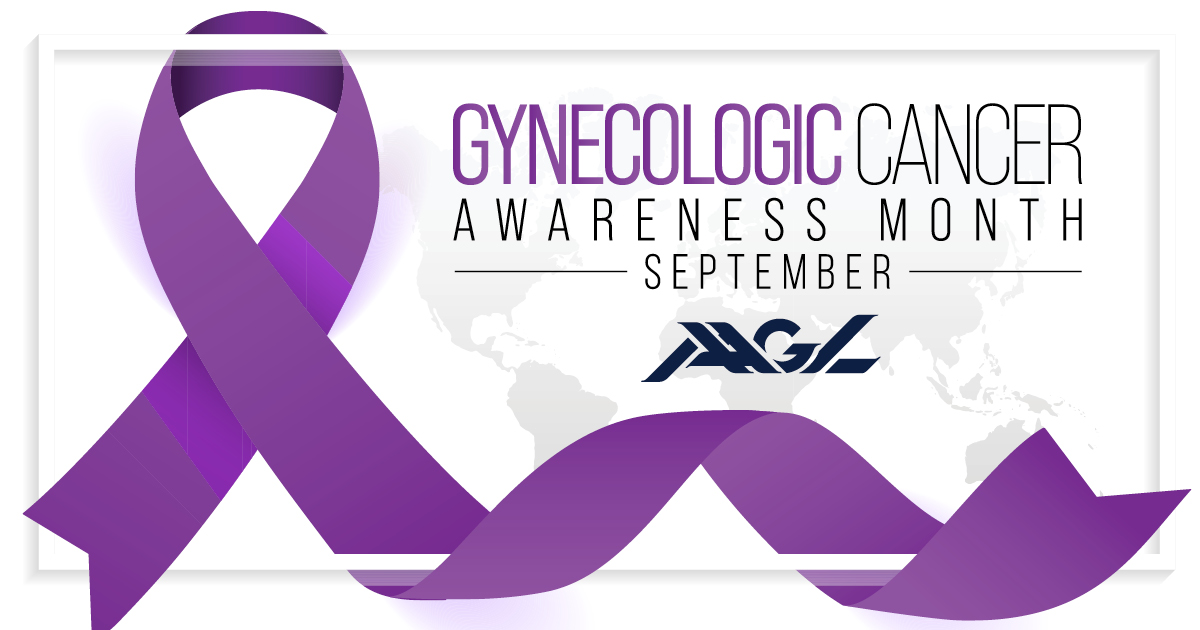September is Gynecological Cancer Awareness Month in AAGL
Every September we take time to remind our colleagues to encourage their patients to increase their awareness about prevention and early detection of gynecological malignancies.
Here we provide some brief and effective messages to relay to women seeking general gynecologic care.
Cervical Cancer
It’s a preventable and treatable cancer if detected early. It has a prolonged pre-invasive phase which is asymptomatic and can be diagnosed with Pap test and/or Human Papilloma Virus testing.
You can reduce your risk by:
Getting HPV vaccination, ideally from 9 years old and not over 45 years of age., Pap test + HPV testing periodically, practice safe sexual habits and avoid smoking.
Endometrial cancer (Also called uterine corpus, uterine or womb cancer)
It’s usually diagnosed after abnormal uterine bleeding (in between cycles or as a change in personal uterine bleeding characteristics) or more commonly in postmenopausal bleeding, even if scarce. Incidentally, some are diagnosed after a routine pelvic ultrasound depicting an abnormal lining of the uterine cavity.
You can reduce your risk by:
Maintaining a healthy body weight and understanding if there is a history of certain cancers in your family such as colon, endometrial, ovary and breast.
Ovarian Cancer
Clinical presentation of this malignancy is quite vague and shares symptoms with gastrointestinal disorders. That’s why the vast majority is diagnosed in advanced stages. Change in bowel habits, abdominal bloating, loss of appetite and body weight are some of these unspecific symptoms. These should prompt a pelvic ultrasound and blood tests evaluating serum tumoral markers (Ca125, Ca 19-9 and others).
You can reduce your risk of being diagnosed in an advanced stage by:
Knowing your family cancer background since there are some inherited gene mutations (BRCA, Lynch Syndrome, and others) related to this cancer and that can be suspected and studied after analysis of your family tree. Also, oral contraceptive intake before menopause has been shown to be somehow protective.
Vulvar cancer
This is a rare malignancy, but sadly it is also under- and mis-diagnosed. Like cervical cancer, there is a strong association with Human Papilloma Virus but also with some chronic local skin conditions. It has a prolonged preinvasive phase and patients often present with itching, irritation and eventually ulceration.
You can reduce your risk by:
Getting HPV vaccination, ideally from 9 years old and not over 45 years of age. Besides cervical and vulvar cancer, the HPV vaccines can prevent vaginal, anal and some head and neck malignancies. Avoid smoking and seek medical advice if you find any skin changes or ulcerations in the vulvar, perineal, or inguinal area.
Briefly reviewing these facts with patients would take no more than 2 minutes in a routine gynecologic visit and could make a big difference for patients and their family.
Let’s make our patients aware of Gynecological Cancer and remind them to make their gynecological health a PRIORITY!







